Tourist Guide to Camping in New Zealand
It is no surprise that camping is a popular hobby in New Zealand, a country known for its natural beauty. Few things compare to sitting around a campfire on a clear night staring at the sky and listening to the surf crashing or native birds singing. But before you go out camping in New Zealand, here are a few things that you should know beforehand, to have an unforgettable experience.
A note on New Zealand ETA Visa
New Zealand ETA eligibility will allow nationals of over 150 countries to apply for New Zealand Electronic Travel Authority (NZETA). This ETA Visa for New Zealand can be obtained in under 72 hours and in most cases in under 24 hours. Contact New Zealand Visa Help Desk for further queries.
What are the different types of camping options in New Zealand?
In New Zealand, you will be offered a huge variety of camping options, which we will further be elaborating on in this article.
Holiday parks and campgrounds
Commercial enterprises that provide a safe and well-equipped camping experience are known as campgrounds or vacation parks. Tent sites powered and unpowered van or motorhome sites, and occasionally cottages or 'units' are all common. A tent site can be a designated area of grass or a "take what you can find" arrangement where you can pitch your tent anywhere you like. The use of the campsite amenities is included in the price of your tent or RV space.
Holiday Parks for vacationers - Tents, caravans, campervans, and motorhomes can be put up at holiday parks with or without electricity. There are also basic cottages, self-contained hotel rooms, and backpacker's lodges in several of them. It is always included in the price to have easy access to a communal kitchen and bathroom.
Holiday parks are ideal for families since they typically have play areas, heated pools, trampolines, and grills. You will often have access to a dining room as well as a relaxing TV lounge. Holiday parks are frequently located near important cities and tourist areas, making them easily accessible.
Camping grounds - The perfect camping spot is New Zealand. Campgrounds are operated by the Department of Conservation and are located around the country, typically in isolated wilderness regions. The facilities differ, but they are all in beautiful locales. Camping at a DOC site is usually calmer than camping in a holiday park, and there are generally walking paths nearby.
In the Auckland area, Auckland Council also manages a variety of attractive campsites, including the famed Tawharanui camping field. If you are on a budget and want to see the most remote parts of New Zealand, ethical freedom camping is an option.
Remember that New Zealand eTA Visa is a mandatory requirement to enter New Zealand as per Government of New Zealand, you can avail of New Zealand Visa on New Zealand eTA Visa website for stays of less than 6 months. In fact, you apply for New Zealand Tourist Visa for short stays and sight seeing.
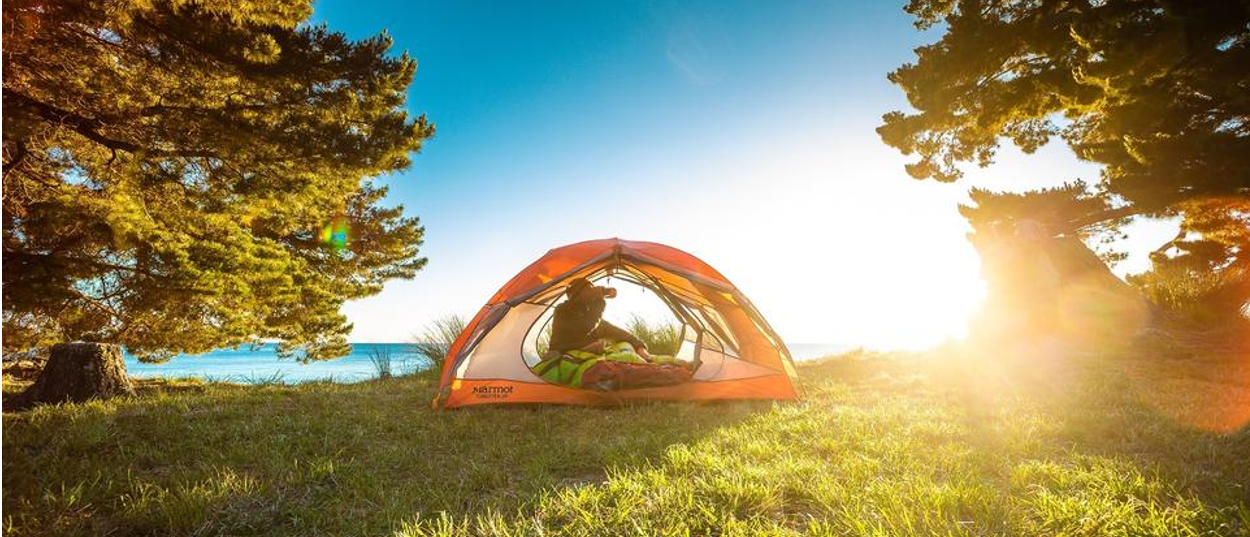
Glamping
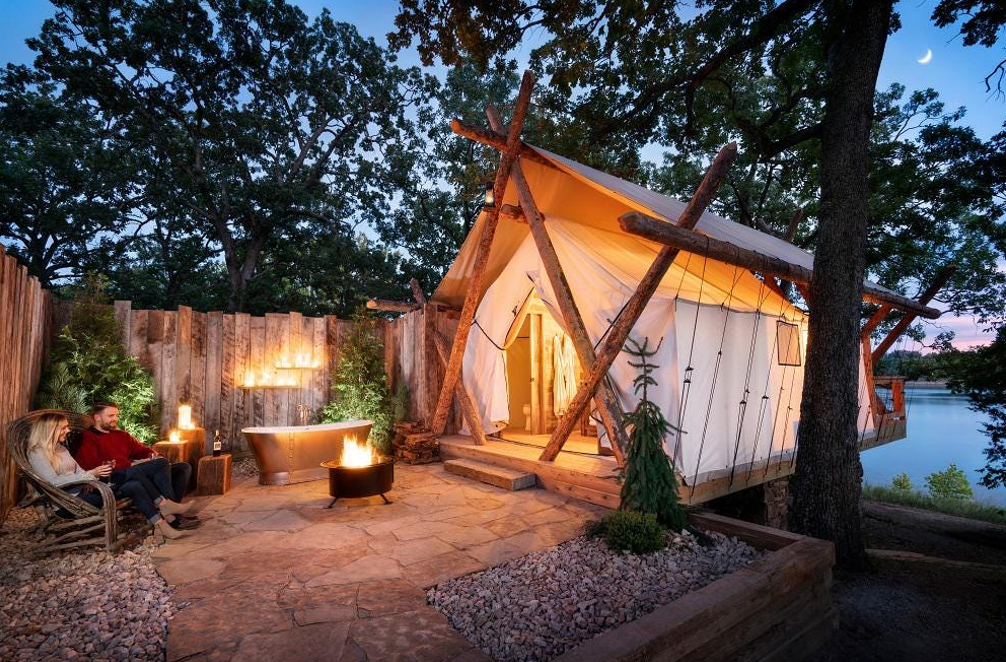
‘Glamorous Camping,' or 'Glamping,' is a relatively new concept in the camping world. It is like camping but with the added conveniences of home. Glamping is getting more and more popular by the day, with outdoor baths and breathtaking vistas, comfortable fireplaces, and large decks. New Zealand boasts outstanding glamping places that provide the ultimate retreat, thanks to its secure countryside and breathtaking surroundings.
Glamping in New Zealand is an unforgettable experience. Relax and enjoy the peace at one of New Zealand's greatest glamping destinations, from the deep south of Te Anau to the far north of the Bay of Islands. New Zealand provides glamping choices to suit everyone, whether you are seeking a romantic retreat or a luxurious group excursion. The secure countryside and gorgeous vistas of New Zealand provide for the ideal secluded getaway.
Read more:
New Zealand as a country is the most wholesome place for a nature lover to be, they can find a plethora of flora and fauna here set in myriad diverse landscapes which will leave tourists spell-bound and leave them wanting for more after visiting every place. Learn more at Top 10 Picturesque locations for tourists visiting New Zealand.
Department of Conservation (DOC)

Over 250 public camping spots on conservation property are managed by the Department of Conservation (DOC) throughout New Zealand. These campsites, which are in some of New Zealand's most beautiful places, normally do not have an on-site manager and are run on a trust basis. On DOC conservation campsites, tents, vans, RVs, and caravans are all accepted. The facilities are often basic and rudimentary, but the costs are very low – sometimes even free!
These conservation areas are frequently found in some of the country's most beautiful locales, such as national parks, along the Great Walks, and in peaceful and quiet areas. The campgrounds are typically simple, giving 'back to nature' type lodging and amenities at a low cost.
DoC campgrounds are divided into six categories:
Serviced campgrounds - They provide a variety of amenities such as flush toilets, kitchen & cooking facilities, hot showers, and garbage pickup. These campsites may be reserved at a Department of Conservation visitor centre.
Campgrounds with a view – These campsites, which are usually in high-use coastal areas, offer bathrooms and running water, as well as barbeques, cold showers, and trash cans. Some picturesque campsites can be reserved ahead of time.
Standard campsites - They include a limited variety of amenities, such as a pit or composting toilet, running water, cold showers, barbecue, and garbage disposal. In most cases, these campsites are not bookable.
Essential campgrounds — To stay at these campsites with basic toilet facilities and water from a tank, lake, or stream, you must be completely self-sufficient. In most cases, basic campsites are not bookable.
Backcountry campsites - They usually feature bathrooms and access to a stream for water. They may also feature picnic tables and some standard cooking facilities. In most cases, these campsites are not bookable.
Great Walk campgrounds – There are 60 Great Walk campsites located along all Great Walk trails (excluding Milford), each with basic amenities like bathrooms and running water. In most cases, reservations are necessary.
READ MORE:
Adventurke seeker ? Read about Skydiving in Auckland and rest of New Zealand.
Responsible Freedom camping or 'free' camping
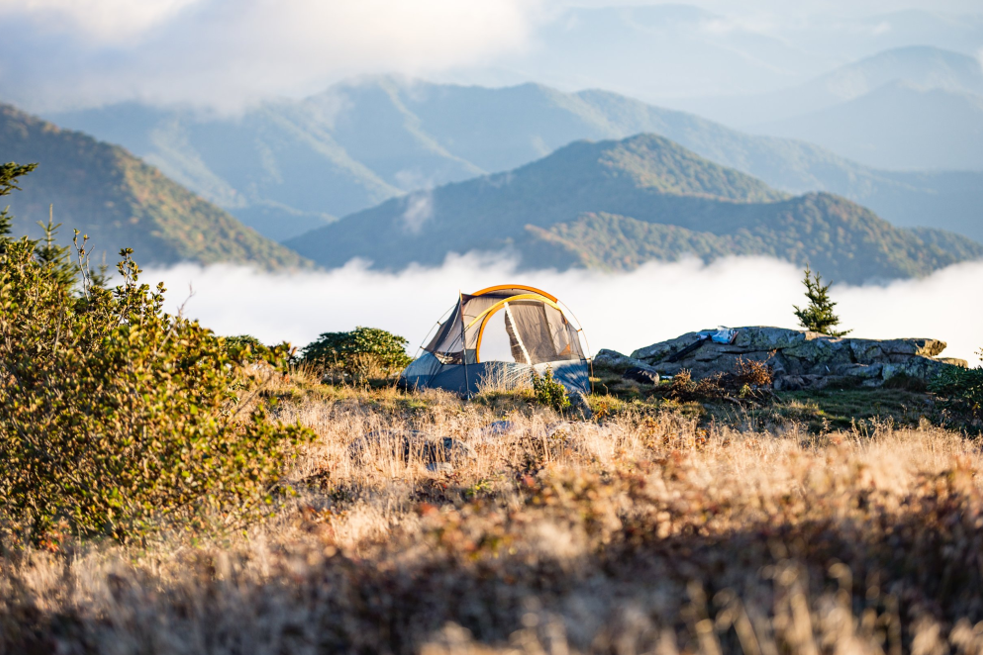
For some tourists to New Zealand, responsible freedom camping is a popular option; nevertheless, while it is free, it is not without risk. Camping in a tent, campervan, or motor vehicle on public land with limited or no facilities, such as toilets or showers, is called responsible freedom camping in New Zealand.
In New Zealand, there are over 500 responsible freedom camping areas, and while staying overnight, freedom campers must adhere to some basic laws and regulations.
However, there are rules regarding freedom camping in the country:
- You must dispose of garbage in a responsible manner.
- You must respect the environment by removing any trash and ensuring that the camping area is left clean for those that arrive after you.
- When it comes to freedom camping, it is important to be safe.
While New Zealand is a safe destination to visit, you should be cautious of your surroundings and consider your options before camping in remote places.
- Check the weather forecast and prepare for the unexpected.
- Have lots of supplies on hand at all times (food and drinking water)
- Give a trustworthy contact your contact information and trip intentions.
- Do not leave valuables on display, and keep the doors locked at night.
Before you begin your freedom camping journey, it is a good idea to double-check that you understand the following key points:
- Make sure you are familiar with the laws and regulations of the local council and the Department of Conservation property you will be camping on, since they may change depending on who is the area's protector.
- A violation of the guidelines might result in substantial fines (up to $1,000).
- If you plan to freely camp in a self-contained vehicle, check sure it meets the requirements.
Motorhomes or campervans
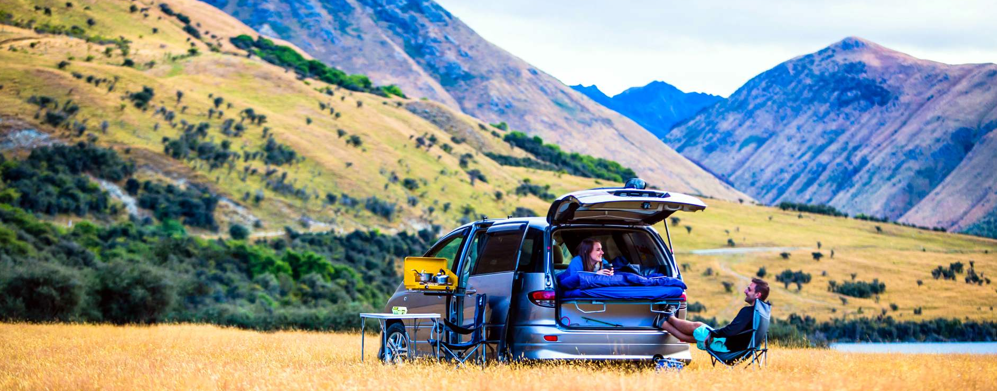
In New Zealand, you may rent a campervan or a motorhome. An adventurous New Zealand road trip in a motorhome or campervan rental will allow you to discover the grandeur of Aotearoa.
On a driving vacation, motorhomes or campervans are the perfect lodging choice for flexibility. A mobile home allows you to take each day as it comes, travel across the country, and park and camp in beautiful and secluded locations.
Campervans and motorhomes may be picked up in most of New Zealand's major cities. Some businesses provide flexible pick-up and drop-off options, allowing you to travel from one location to another, rather than making a round journey. Motorhomes are bigger vehicles with more spacious interiors. Showers and toilets are included in some of the units.
Campervans, which are normally the size of a van, are the smaller relatives of motorhomes. If you are planning on freedom camping, be sure your campervan is self-contained. It may be easier to drive and park these smaller automobiles.
However, there are a few points that you need to keep in mind in this case as well:
- Maintain the cleanliness of New Zealand.
- Always utilise a public restroom or your vehicle's toilet. Apps like CamperMate can assist you in locating nearby restrooms.
- Defend the environment. To help safeguard the environment, use recycling facilities or stations for waste disposal wherever they are available.
- If you are travelling in a motorhome, you will need to dump your wastewater and toilet at an authorised dump station. Check for signs or see if there is a nearby station.
What is the cost of renting a motorhome or campervan?
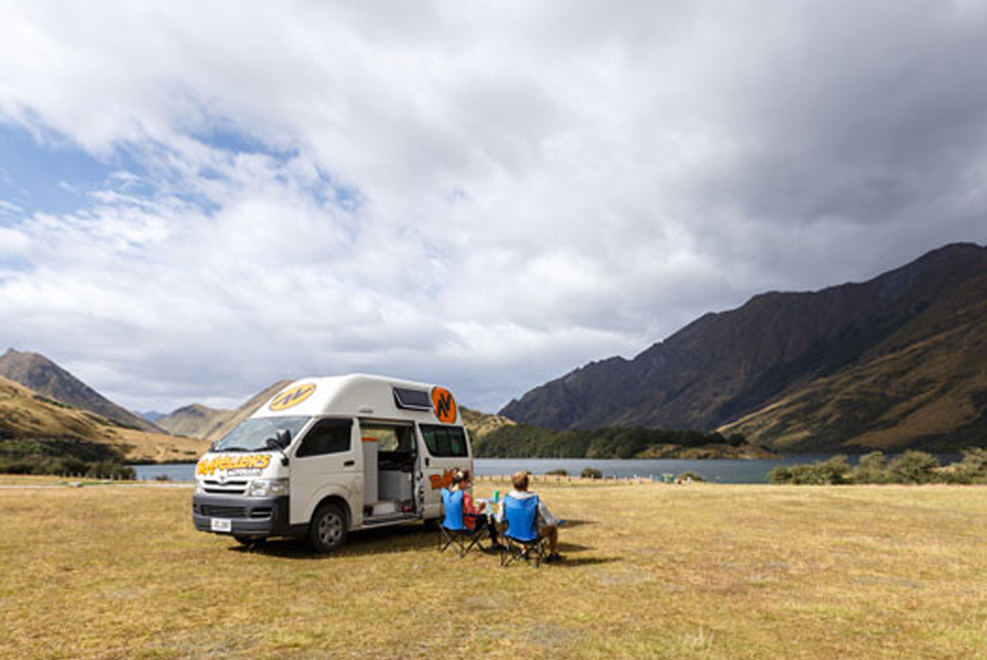
The cost of a daily rental varies depending on the season; in the summer, you may pay nearly twice as much as in the winter. The cost of a car also varies based on its condition. Some organisations rent out older automobiles to low-cost travellers, while others cater to drivers who seek the most features and comfort.
Consider travelling during the off-seasons and booking early in advance to receive the greatest rates on motorhomes. Rates typically offer unlimited daily kilometres but do not include extras such as insurance. You have the option of including insurance in your daily pricing or not. It may not be necessary if you have comprehensive travel insurance, but you may be required to pay a hefty bond instead.
The regulations for driving a motorhome or campervan in New Zealand are as follows:
- Kitchen, washing, and toilet facilities are available at holiday parks and campsites, and many are located near a lake or on the beach. Powered sites enable you to connect your car to a power source, allowing you to charge your battery and use additional electrical amenities like heaters.
- For completely self-contained RVs, responsible freedom camping may be feasible, but it is best to check with the local information centre first because each district in New Zealand has distinct restrictions about where it's allowed.
- If you enjoy food and wine, there are a lot of vineyards, farms, olive producers, and other businesses that will let you park for free!
READ MORE:
Wine and Dine - Auckland has also some amazing Restaurants.
Ensure that you have checked the eligibility for your New Zealand eTA. If you are from a Visa Waiver country then you can apply for an eTA regardless of the mode of travel (Air / Cruise). United States citizens, European citizens, Hong Kong citizens, and United Kingdom citizens can apply online for New Zealand eTA. United Kingdom residents can stay on New Zealand eTA for 6 months while others for 90 days.
Please apply for a New Zealand eTA 72 hours in advance of your flight.
